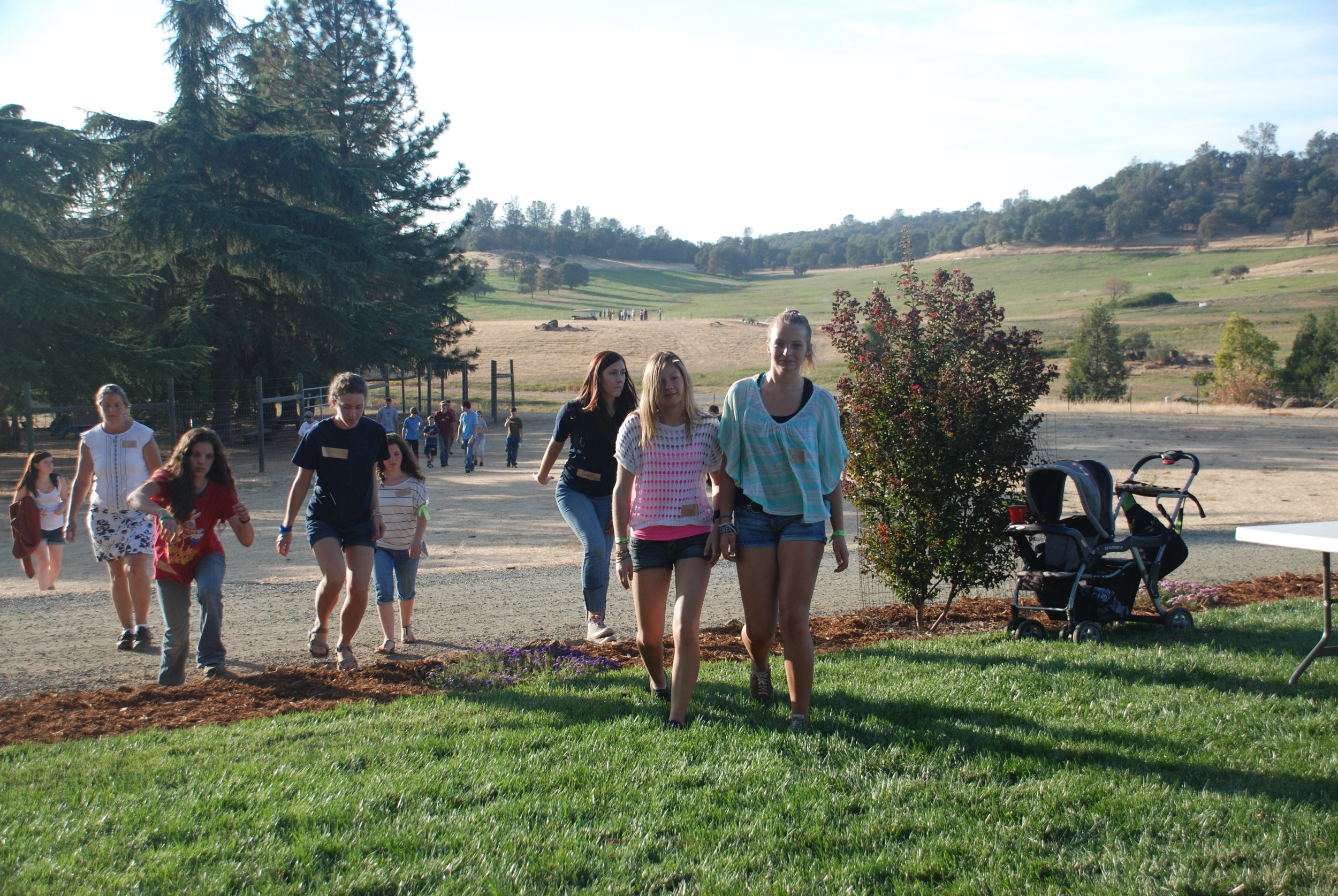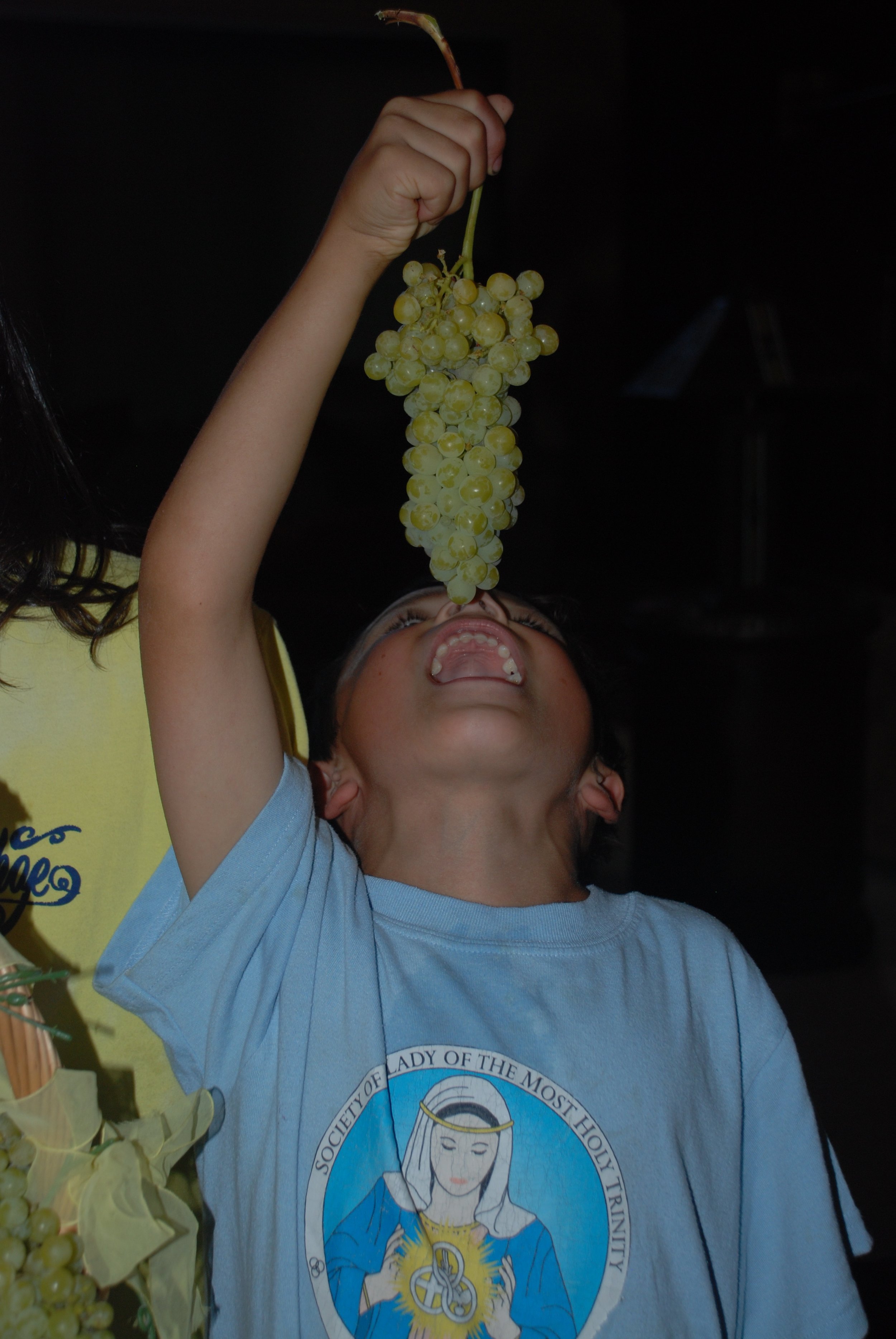Why Homesteading ?
An Agrarian Lifestyle
Throughout early history, people lived a predominantly agrarian-based lifestyle where they depended on God and one another for survival. The family needed one another and the neighborhood community thrived in assisting each other. The extended family was an unbreakable unit that dwelled together, taught each other, and helped one another throughout each stage of life.
In our more recent history, the news was passed by talking together in the town square or church plaza, creating a sense of community. People prayed together, ate together, worked together, and played together. They shared their religion, their prosperity, their struggles, and their joy. People realized the need for one another and shared with each other on a daily basis, thereby establishing bonds of love, bonds of community – bonds of unity.
People realized their need for one another.
But today, under the guise of progress, civilization has become uncivilized. Inventions in industry, transportation, and communication have progressed convenience, comfort, and competition, but regressed our sense of community. We went from realizing our dependence on God and one another to thinking that we are self-sufficient and independent. We went from a sense of community to a sense of individualism. This transition has left many souls empty without God, as opposed to a fullness of life with Him. The results of this self-inflicted oppression are staggering statistics of divorce, abortion, and suicide. Individualism has created divorce and death; the break-up of family life resulting in the breakdown of social life. Individualism has broken our unity, thus broken our community.
Our modern-day society promotes individualism through the current lifestyle which sends the entire family away from the house for the majority of the day. The father, and now usually the mother as well, go out to work each day for nine hours or more while the children go out to school. Then team sports or music lessons or some other individual activity occupy the better part of the afternoon and early evening so that dinner is left to a whim, and the family has yet to spend any quality time together. The individual has dominated the day. The children (and sometimes the parents as well) are so consumed by their own activities that no one has considered what’s best for another, let alone making the time to serve each other.
What happened to the days when the family would read together in the evening? And why don’t families share meals together? A recent magazine article entitled, “How to stay together as a family,” listed ten ideas. The first one stated, “Eat dinner together at least once a week.” Is that how far we’ve gone? Is that how individualistic we’ve become? …at least once a week? How about every day! And what about breakfast and lunch? The modern-day family average for being all together in the family home, at the same time, is only one hour each day (outside of sleeping time). That’s why we have a sixty percent divorce rate, and that’s why suicide is now the teenagers’ number one cause of death.
Where have all the good times gone?
Modern technology is a gift from God to give us more time to spend with Him in prayer and with each other in loving service and recreation. However, this technology appears to be working against our unity because while we save some time, we right-away fill it with individual activities rather than communal ones. For example, automobiles, cellular phones and the internet save us an incredible amount of time. But where is it? Somehow, the time we save becomes occupied by doing more rather than being more.
Unfortunately, the cravings of doing more lead to needing more money, so we work more. Then, we eat out more and buy more things, so we work more again to pay for these extras. Then, we get so consumed by the extras that we forget the simple pleasures of life that God intended for us: like a quiet walk with our spouse, or noticing funny little actions of our children, or drinking a cold glass of lemonade on a hot summer day. Where have all the good times gone? When our individual schedules replace our family schedule, busyness replaces goodness.
Yet God invites us to live in His goodness – a unity of life in a community of love, resulting in peace and joy. So let us explore the attributes of our ancestor’s agrarian-based lifestyle to rediscover the advantages it contains in addition to creating unity within the community.
A small family farm reduces the cost of living to help a family work less outside the home. Combining a small farming operation with home schooling and at-home entertainment reduces costs even more. Then, because the family members tend to be at home more often, there is less pressure to buy more stuff or nicer things (because, well; they do). So now mom doesn’t have to work and dad can get home early. So up goes quality time with the family members, and up goes the quality of life for the entire family.
Praying, working, eating, playing, and resting together.
Now there is more work at home rather than more work outside the home. So now we need family work time rather than more individual time. Now we need each other, and that’s a good thing. We need each other to share in the work. We need each other’s prayers. We need to eat, and it’s more enjoyable to eat together. We need recreation so we play together. And we need to rest, and nothing could be better than resting in our own home. So with working, praying, eating, playing, and resting, we now have the five essential components of unity and the time to enjoy them together – to enjoy each other forever.
For a single family, establishing and maintaining a small farm, home schooling the children, and providing for the basic needs of each family member can be a daunting task. It’s a lot of work. That’s why our ancestors didn’t usually do it alone – they had their extended family. God gave us the gift of family for a reason. He gave us each other to help one another with the work, and to support each other in prayer and other activities. And God knows that as we work together, we become more unified with one another.
The small family farm fosters common goals and generates opportunities to work together as a family to achieve those goals. This of course promotes unity between the family members (and extended family members), spiritually connecting them to one another and to God. The small family farm also brings many physical and psychological advantages to the family. It yields good tasting, healthy food, while connecting us back to the earth, back to Creation – back to Christ. “The Lord God then took the man and settled him in the Garden of Eden, to cultivate and care for it.” (Genesis 2:15)
It is important for us to be connected to the earth. We derive a portion of fulfillment through this connection for we were made from it. “The Lord God formed man out of the clay of the ground.” (Genesis 2:7) There is a certain wholeness we receive from working in the ground. It is part of a wholesome life. By connecting back to Creation we connect to our Creator, who generates in us a certain peace, a certain fulfillment, an indescribable satisfaction – a wholeness. “My soul finds rest in God alone; my salvation comes from Him.” (Psalm 62:1)
Maintaining a small farm is hard work. “By the sweat of your brow shall you get bread to eat.” (Genesis 3:19) But God, in His infinite mercy, gives us a certain satisfaction through the human accomplishments resulting from our work. So He didn’t give us work as a punishment, but He provided work as a gift for us. A God-given satisfaction occurs when we reap what we have sown for we receive a wonderful peace while resting after a hard day’s work. And we receive an additional reward as we enjoy eating the fruits of our labor, for there is no greater satisfaction than eating a wholesome meal that was cultivated, planted, nurtured, and harvested with one’s own ingenuity and effort.
God also gives us this work for physical exercise, to strengthen our bodies and to nourish them. Food was meant to be the complete source of our nutrition, as opposed to commercially grown foods, which are generally rich in pesticides and poor in nutrition. With homegrown food there is no need to supplement our diet with vitamins because the food itself is packed with them, as God originally intended.
Homegrown food bursts with flavor. And after working so hard to get it, the wonderful taste and the wholesome satisfaction of growing it ourselves elevates us in thanksgiving for the generosity of God. “The Lord has done great things for us, and we are filled with Joy.” (Psalm 126:3)
Life on a Catholic Family Homestead is
“A way of Salvation” for those who desire
To live in peace and to share it with others…
And for those who are called to it by God,
It will contain for them…
The fullness of life!
For it will be for them the surest means of sanctity and their greatest joy.
“You have made known to me the path of life;
You fill me with joy in your presence,
with eternal pleasures at your right hand”
(Psalm 16:11).
For further reading on homesteading activities and some more answers to the question, “Why Homestead?”… Feel free to explore the lifestyle here at Our Lady’s Ranch.
And for photos and stories of our daily life here, follow us on Instagram @ourladysranch.
Love and Peace from all of us to all of you,
Philip Zeiter,
Our Lady’s Ranch





